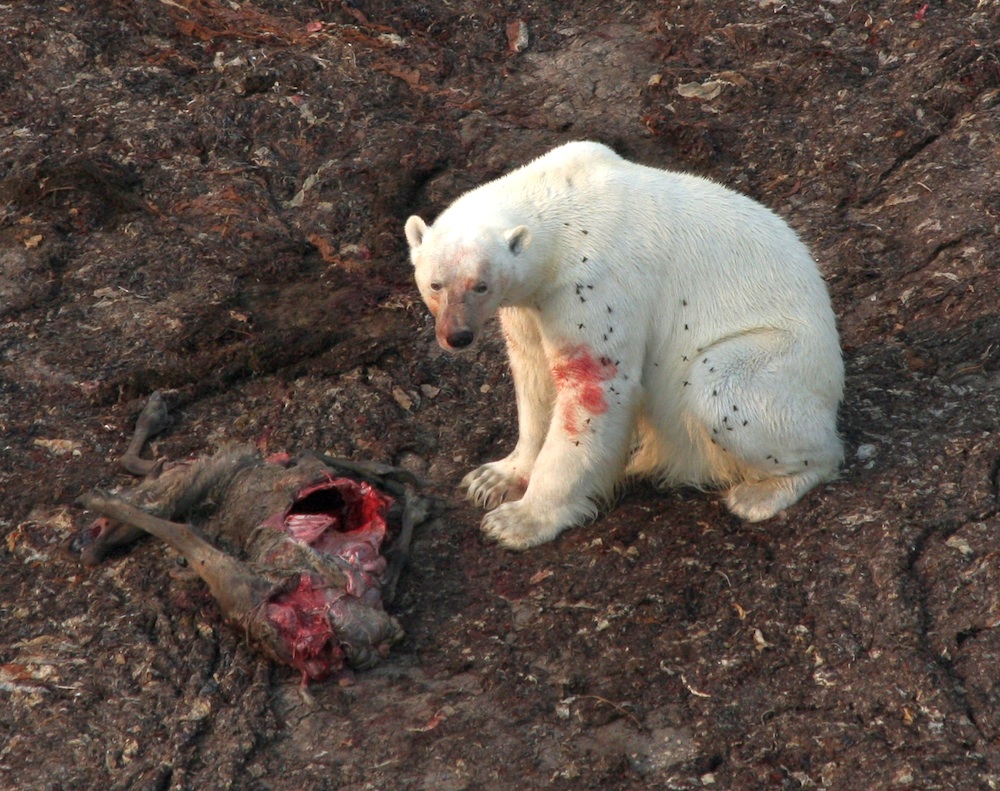A recent study published in Ecology and Evolution shows that polar bear diets are more adaptable than previously thought.
Researchers Linda Gormezano and Robert Rockwell analyzed the feces from polar bears (Ursus maritimus) in the western Hudson Bay area and compared their findings to a similar report from 40 years ago. The study was conducted during the ice-free season when polar bears usually hunt seals to build their annual fat reserves. Since ice is melting more rapidly, less time is available for the bears to hunt their preferred prey. What is a polar bear to do? Become less selective.
The recent analyses of polar bear feces show the animals are consuming increasingly available land resources due to the changing climate. Bird remains were found in 29% of the samples analyzed, comprised mainly of snow geese whereas eggs were found in 4.4% of the samples. The most commonly found mammalian remains were caribou (10.1%), seals (6.5%) and other polar bears (5.1%). They also discovered the occasional, but rare, remains of small mammals (rodents and hares). Polar bear feces also contained significant vegetation mainly in the form of grasses and marine algae.
In comparison to 40 years ago, polar bears are consuming fewer small mammals and more polar bears (presumably through cannibalism). The frequency of bird and seal remains has not changed. Interestingly, caribou and eggs appear to be new resources for polar bears as no evidence for their consumption was seen in the prior study. As for vegetation, while consumption of berries and mosses has not changed, polar bears are now consuming more Lyme grass and mushrooms with less marine algae and other grasses found in their feces.
Sources:
LiveScience
Gormezano LJ, Rockwell RF. What to eat now? Shifts in polar bear diet during the ice-free season in western Hudson Bay. Ecology and Evolution. 3(10): 3509-3523, 2013.


It has been said that polar bears would not be able to adapt in changing ice conditions--especially with the rising presence of greenhouse gas--this article gives a bit of hope that the skeptics were wrong. Polar bears are trying their best to adapt to the rapidly changing conditions, but it still important to make a change to reduce the melting of ice glaciers.
http://www.polarbearsinternational.org/about-polar-bears/essentials/evo…
Many suggests that polar bears are going to become extinct in the near future. This article gives hope in a way that polar bears may be able to survive. According to Charles Darwin's evolution theory of natural selection, the elimination of the insufficient. Considering the polar bears are already adapting to the current environment, hopefully evolution will be able to occur over time and save their species.
However, this hope is indefinite, as the rate at which humans are polluting the atmosphere and the melting of ice glaciers are much more rapid than evolution taking place. Therefore, it is of utmost importance to help make a change in the environment to reduce the melting of ice glaciers.